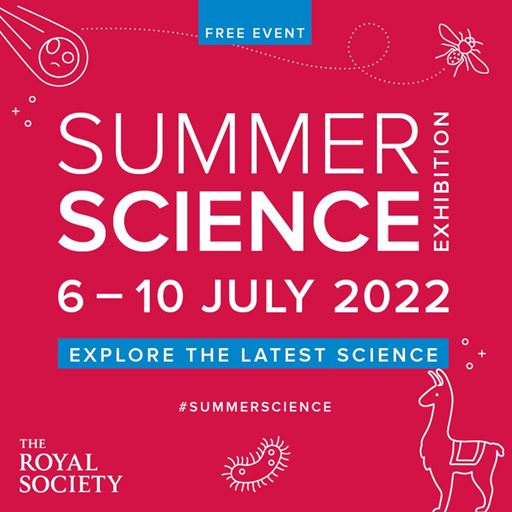Essex research to be showcased at prestigious Summer Science Exhibition
-
Date
Fri 6 May 22

Cutting-edge research from the University of Essex is playing a key role in this year’s prestigious Royal Society Summer Science Exhibition in London.
Out of the 16 inspiring science exhibits from across the UK specially chosen for the event, three are showcasing excellence in research at Essex.
The Royal Society Summer Science Exhibition 2022, is an annual showcase of the UK’s most exciting science. Taking place from Wednesday 6 July to Sunday 10 July 2022, this free event brings together some of the UK’s world-leading researchers for five days of cutting-edge science, interactive experiences, and a weekend programme of activities and workshops for all ages.
Professor Carlos Frenk, Chair of the Royal Society’s Public Engagement Committee, said: “We are very much looking forward to opening our doors this summer to visitors of all ages to take part in an exhibition that features the ideas and people behind some of the most inspiring science in the UK.
"The importance of science to society, and in our daily lives, has never been as much in evidence as in the past two years. The exhibition explores the science at the heart of some of the biggest issues of our time.”
Professor Chris Greer, Pro-Vice Chancellor Research at the University of Essex, said: “Essex has a reputation for developing high-impact, world-class research and we are delighted to see three key areas of Essex research being showcased at this exciting science event.
“It’s a real privilege to be playing such a major role in the Royal Society’s flagship outreach activity. We hope our participating researchers will inspire the next generation of scientists to continue making the world a better place.”
The three exhibits showcasing research at Essex are:
Discover values: Smashing stereotypes?
The research team, led by Dr Paul Hanel, from our Department of Psychology, will demonstrate how accurate our perception of differences in human values between groups of people and our perception of actual polarisation in our society actually is.
The exhibit will showcase research showing that people struggle to perceive differences with others accurately. The issue boils down to the difficulty in identifying our own values - abstract ideals people consider to be important guiding principles in their lives - and those of others. For example, how different are voters of the Conservative and the Labour party, women and men, or younger and older people in their values?
“Dr Hanel said: “We often hear stories about the differences which divide us, but we have collected data that enables us to make some surprising discoveries about people’s values and the differences between people. Our stereotypes can be accurate in some cases and wrong in others.”
Mind over matter
Led by Professor Reinhold Scherer, from our School of Computer Science and Electronic Engineering, this stand will showcase the research involving brain activity being carried out by our Brain-Computer Interfaces and Neural Engineering Research Group.
The exhibit will showcase Essex’s work on expanding our understanding of brain signals and patterns and translating them into information that can be understood by artificial devices.
Visitors will be able to:
- Control a robot with bioelectrical signals recorded from nerve cells that control muscles in the arm.
- See their brain waves and use a brain-computer interface to play a game.
- Learn about brain anatomy by taking apart and assembling a model of the brain.
Professor Scherer said: “At Essex our Brain-Computer Interfaces and Neural Engineering (BCI-NE) laboratory is one of the largest of its kind in Europe and we are delighted to have been given this opportunity to showcase our research at the Summer Science Exhibition.
“Research into neural engineering technologies for people with and without disabilities is a growing area and we at Essex are proud at being at the forefront of this exciting area of research.”
Ocean Travellers
This research team, led by Dr Nick Aldred for our School of Life Sciences, will showcase the hidden movements of life in the sea by all sizes of organisms – from bacteria and barnacles to salmon and whales – and the importance of this movement to the ecosystem.
Using microscopes and interactive games, the exhibit will showcase leading research at Essex into understanding organism movements and raising awareness of how the human footprint is affecting these important movements.
Dr Aldred said: “Movement is critical for the survival of all things living in the sea – it brings together individuals to breed, feed, protect from predation and cope with the ever-changing environmental conditions.
“We are thrilled to have this opportunity to showcase Essex research into the wonderful hidden world of movement, whilst highlighting the negative impact human activities such as fishing and pollution are having on these valuable ecosystems.”
.jpg?mh=500&mw=500&hash=6568B6C9CCF5290A596BEF6678B6AD0E)



